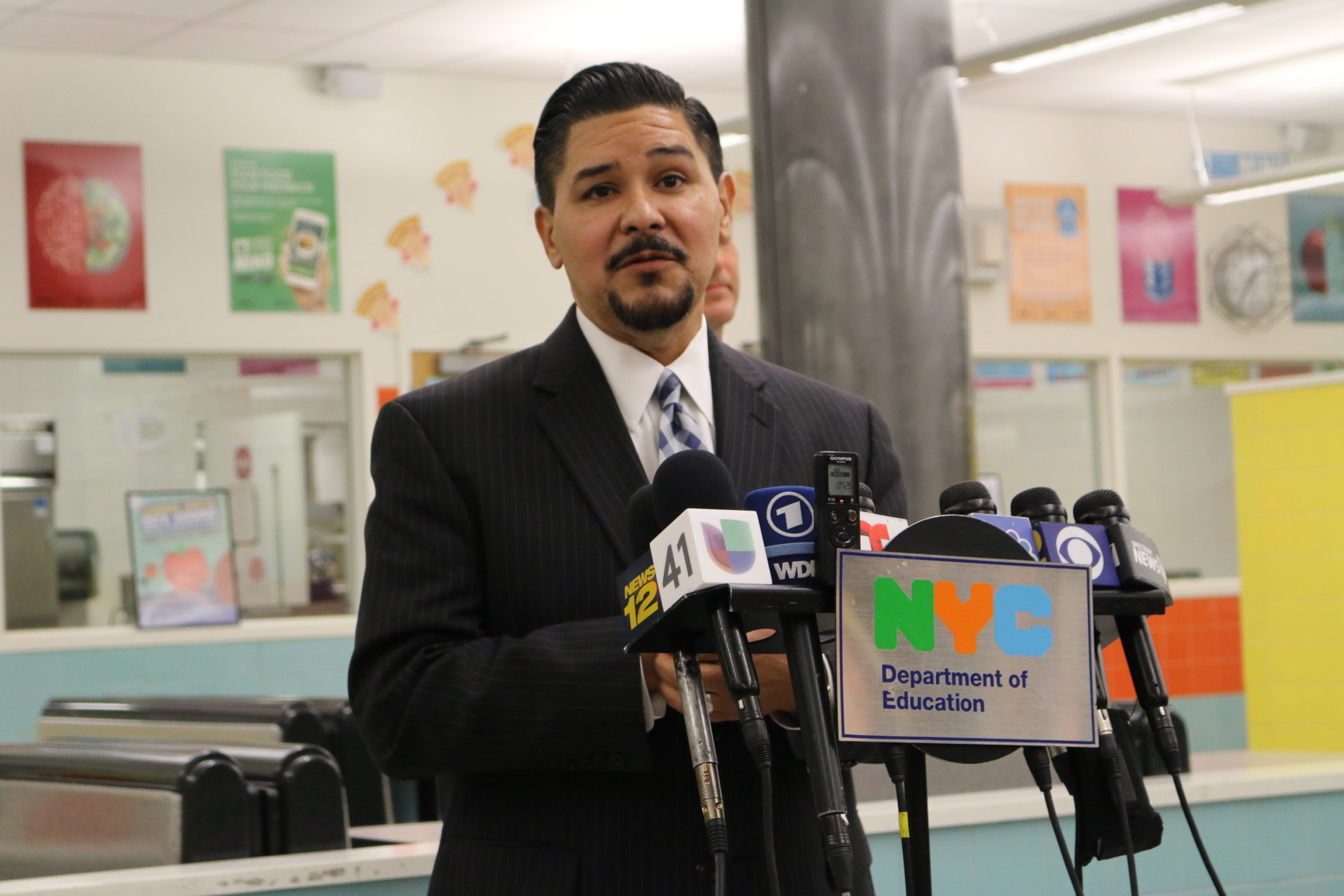As city studies gifted and talented programs, Carranza says not to expect changes this school year

“As city studies gifted and talented programs, Carranza says not to expect changes this school year” was originally published by Chalkbeat, a nonprofit news organization covering public education. Sign up for their newsletters here.
A week after an influential advisory group recommended eliminating gifted and talented programs in their current form, New York City Chancellor Richard Carranza calmed growing concerns by emphasizing that there would be no changes this year.
In an appearance Tuesday on WNYC’s The Brian Lehrer Show, Carranza offered his most substantive public comments since the report’s release. He signaled that the city education department would take a close look at what’s being taught in gifted and talented classes and at the best ways to identify gifted children. He also reassured parents that their children’s programs won’t close this year.

Brooklyn Boro
View MoreNew York City’s most populous borough, Brooklyn, is home to nearly 2.6 million residents. If Brooklyn were an independent city it would be the fourth largest city in the United States. While Brooklyn has become the epitome of ‘cool and hip’ in recent years, for those that were born here, raised families here and improved communities over the years, Brooklyn has never been ‘uncool’.